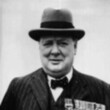Last Hope Island: Britain, occupied Europe, and the brotherhood that helped turn the tide of war
Description
More Details
9780812997361
9781524723804
Subjects
Europeans -- England -- London -- History -- 20th century
Exiles -- England -- London -- History -- 20th century
Government, Resistance to -- Europe -- History -- 20th century
Heads of state -- England -- London -- History -- 20th century
History
Nonfiction
Political refugees -- England -- London -- History -- 20th century
Politics
World War, 1939-1945 -- Diplomatic history
World War, 1939-1945 -- Europe
World War, 1939-1945 -- Governments in exile
World War, 1939-1945 -- Great Britain
Also in this Series
Published Reviews
Booklist Review
*Starred Review* This is a history book that reads like the best thrillers. Olson, who has often written on the period before WWII (Those Angry Days, 2013), has clearly utilized her knowledge and prior research well. England, the island of the title, was home to several of Europe's exiled leaders Charles de Gaulle, King Haakon VII of Norway, Queen Wilhelmina of the Netherlands and private citizens and soldiers (the airmen of Poland, leaders of Czechoslovakia, and the Free French) during WWII. Focusing on these exiles, Olson offers a fascinating view of the war and its aftermath, less from a military than from a high-level civilian perspective. The well-demonstrated incompetence of British intelligence (especially in light of its diametrically opposite reputation) and its military and civilian leaders occasionally lends the astute writing an almost comic perspective. The narrative jumps from London to the Continent, where British cooperation with the Resistance in various countries had much to do with the Allies' victory, and this is carefully recounted. The many individuals are finely drawn, major developments (breaking of the Enigma code, D-Day, the Battle ofArnhem, the crucial contribution of the BBC) are well covered, and the book provides an unusual and very insightful angle on the war.--Levine, Mark Copyright 2017 Booklist
Library Journal Review
In her latest offering, best-selling author Olson (Those Angry Days; Citizens of London; A Question of Honor) revisits World War II history, a topic of several of her previous works. The author once again focuses on the intersections between war and politics, this time with an emphasis on the exile governments situated in London during the conflict. Olson's main argument is that cooperative wartime exile helped many European leaders form connections and networks with one another that would not have been possible in more distant circumstances. These relationships laid the foundation for such political and economic developments as the Benelux Treaty and the European Union. Olson's work is well-researched and well-written, weaving together personal narratives of many prominent Allied leaders with political intrigue and wartime developments. VERDICT Recommended to readers with an interest in World War II, political science, European history, and 20th-century history.-Crystal Goldman, Univ. of California, San Diego Lib. © Copyright 2016. Library Journals LLC, a wholly owned subsidiary of Media Source, Inc. No redistribution permitted.
Kirkus Book Review
A "rich, intensely human story" of European cooperation during World War II.Early on during the war, government officials and many citizens of a host of conquered European nations fled to Britain. Bestselling historian Olson (Those Angry Days: Roosevelt, Lindbergh, and America's Fight Over World War II, 1939-1941, 2013, etc.) writes a vivid history of the war through the eyes of the exiles and compatriots left behind. She reveals inspiring tales of heroism, suffering, and sacrifice without ignoring too many incidents of betrayal, missed opportunities, and incompetence. First to arrive were the Poles and Czechs. That Britain had betrayed Czechoslovakia to Hitler in 1938 and remained passive while the Wehrmacht conquered Poland in 1939 did not lessen their commitment. Their military units fought with the Allies, and their prewar intelligence skills were far superior. The brilliant Bletchley Park decoders could not have succeeded without the earlier innovations of Polish codebreakers. In 1940, leaders from conquered Norway, Denmark, Belgium, and Holland formed exile governments. Though no significant French political figures came to Britain, Winston Churchill encouraged the obscure brigadier general Charles de Gaulle. Olson reminds readers that, until late 1942, none of this activity greatly inconvenienced Hitler or his plans. Britain's victory (really a draw) in the Battle of Britain was followed by a numbing series of blunders and defeats. Joining the resistance was suicidal; even military buffs will recoil at the murderous ineptitude of early British secret operations. By 1943, however, the Allies had gotten their act together. Their armies were advancing, and the resistance was functioning efficiently. Feel-good histories of World War II have fallen out of fashion, but Britain's sole stand against Hitler remains inspiring. Despite the title, the occupied nations that she sheltered did not "turn the tide," but Olson delivers an engrossing, sometimes-disturbing account of their energetic efforts. Copyright Kirkus Reviews, used with permission.
Booklist Reviews
*Starred Review* This is a history book that reads like the best thrillers. Olson, who has often written on the period before WWII (Those Angry Days, 2013), has clearly utilized her knowledge and prior research well. England, the island of the title, was home to several of Europe's exiled leaders—Charles de Gaulle, King Haakon VII of Norway, Queen Wilhelmina of the Netherlands—and private citizens and soldiers (the airmen of Poland, leaders of Czechoslovakia, and the Free French) during WWII. Focusing on these exiles, Olson offers a fascinating view of the war and its aftermath, less from a military than from a high-level civilian perspective. The well-demonstrated incompetence of British intelligence (especially in light of its diametrically opposite reputation) and its military and civilian leaders occasionally lends the astute writing an almost comic perspective. The narrative jumps from London to the Continent, where British cooperation with the Resistance in various countries had much to do with the Allies' victory, and this is carefully recounted. The many individuals are finely drawn, major developments (breaking of the Enigma code, D-Day, the Battle ofArnhem, the crucial contribution of the BBC) are well covered, and the book provides an unusual and very insightful angle on the war. Copyright 2017 Booklist Reviews.
Library Journal Reviews
In her latest offering, best-selling author Olson (Those Angry Days; Citizens of London; A Question of Honor) revisits World War II history, a topic of several of her previous works. The author once again focuses on the intersections between war and politics, this time with an emphasis on the exile governments situated in London during the conflict. Olson's main argument is that cooperative wartime exile helped many European leaders form connections and networks with one another that would not have been possible in more distant circumstances. These relationships laid the foundation for such political and economic developments as the Benelux Treaty and the European Union. Olson's work is well-researched and well-written, weaving together personal narratives of many prominent Allied leaders with political intrigue and wartime developments. VERDICT Recommended to readers with an interest in World War II, political science, European history, and 20th-century history.—Crystal Goldman, Univ. of California, San Diego Lib.. Copyright 2016 Library Journal.
Library Journal Reviews
As Germany flattened continental Europe at the start of World War II, Britain remained the only European combatant standing and became known as "Last Hope Island." Olson explores the relationship between the Continent and Britain while portraying this land of refuge. From the New York Times best-selling author of Citizens of London.. Copyright 2016 Library Journal.

































